
-
Find the right food for your petTake this quiz to see which food may be the best for your furry friend.Find the right food for your petTake this quiz to see which food may be the best for your furry friend.Health CategoryFeatured products
 Adult Oral Care Small & Mini Chicken, Rice & Barley Recipe Dog Food
Adult Oral Care Small & Mini Chicken, Rice & Barley Recipe Dog FoodClinically proven kibble technology to reduce plaque & tartar build-up, specially designed for small & mini dogs
Shop Now Adult 7+ Small Bites Chicken Meal, Barley & Rice Recipe Dog Food
Adult 7+ Small Bites Chicken Meal, Barley & Rice Recipe Dog FoodSupports energy level and beautiful coat in mature dogs who prefer smaller kibble
Shop Now Adult Small Bites Chicken & Barley Recipe Dog Food
Adult Small Bites Chicken & Barley Recipe Dog FoodSupports lean muscle for dogs who prefer smaller kibble
Shop NowFeatured products Sensitive Stomach & Skin Chicken & Beef Dinner
Sensitive Stomach & Skin Chicken & Beef DinnerGourmet daily nutrition, carefully made. Tasty chunks with chicken & beef in a decadent gravy. Supports digestive health, nourishes skin and promotes a lustrous fur.
Shop Now Adult Chicken & Spinach Casserole Cat Food
Adult Chicken & Spinach Casserole Cat FoodWith delicious chunks in a decadent gravy
Shop Now Adult 7+ Tender Tuna Dinner Cat Food
Adult 7+ Tender Tuna Dinner Cat FoodWith delicious chunks in a decadent gravy
Shop Now -
DogCat
- Cat Tips & Articles
-
Health Category
- Weight
- Skin & Food Sensitivities
- Urinary
- Digestive
- Kidney
- Dental
- Serious Illness
-
Life Stage
- Kitten Nutrition
- Adult Nutrition
Featured articlesHill's Australian Bushfire EffortsRead More Pet Food Storage Tips
Pet Food Storage TipsWhere you store your cat and dog food can make a big difference in the quality and freshness once it is opened. Here are some common questions and recommendations for optimal storage for all of Hill’s dry and canned cat and dog food.
Read More Water
WaterWater is the most important nutrient of all and essential for life. Animals can lose almost all their fat and half their protein and still survive, but if they lose 15% of their water, it will mean death.
Read More -
Digestive health for cats
Digestive health for cats
What are cat digestive issues?
A digestive (or Gastrointestinal) disorder is any health situation that prevents your cat from properly digesting food or alters the rate that food passes through their digestive tract. Don't ignore the signs! If your furry friend is showing symptoms of digestive disorders, seek immediate advice from your veterinarian.
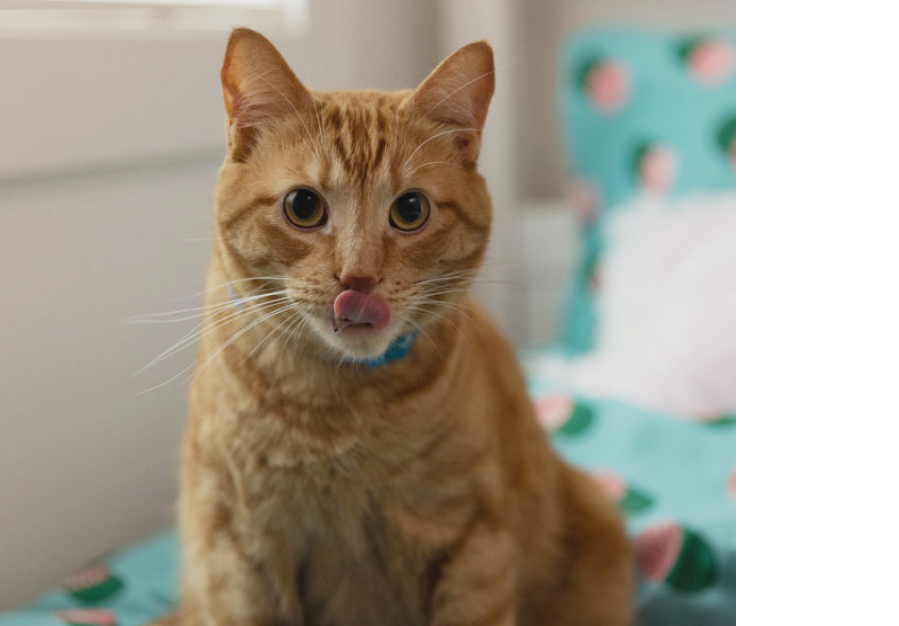
Signs your cat may have a digestive issue
The most common signs of cat stomach problems and digestive disorders are soft stools or diarrhoea. You may also notice some or all of the following signs in your cat.




Signs your cat may have a digestive issue
The most common signs of cat stomach problems and digestive disorders are soft stools or diarrhoea. You may also notice some or all of the following signs in your cat.




Examples of common digestive disorders
Digestive upsets can happen for a variety of reasons, and all of them can make your cat feel under the weather. Remember, that diarrhoea can be difficult to spot in cats that toilet outside. If you suspect your cat is having issues it’s worth providing a litter tray so that you can see what’s going on. Below are some of the more common digestive problems we see in cats.
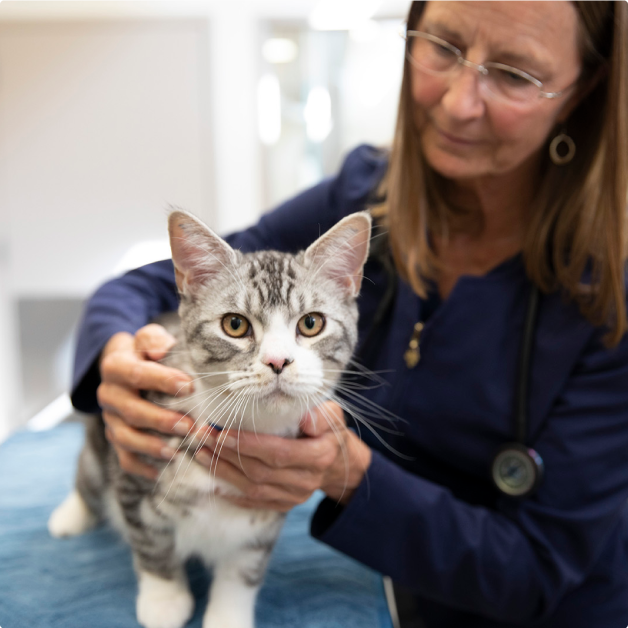

This is the most common cause of an ‘upset stomach’ in cats. It usually consists of vomiting and diarrhoea that begins suddenly. It can be caused by lots of things like eating something unsavoury (or as many cats love to do, eating half a mouse and leaving the rest for us to find!), parasites, viruses and hairballs, to name but a few.
Unlike the sudden onset upset we just mentioned, chronic enteropathies are slower to appear and tend to last a long time. Diarrhoea and weight loss are common signs. Again, it can be caused by many different things such as adverse food reactions, immune reactions and genetics.
The colon is part of the large bowel and when this gets inflamed it’s called colitis. It’s usually very characteristic and most cats show the same signs - looking like they urgently need to have a poop, they might strain to have a poop but not much comes out, and one of the classic signs of colitis is fresh blood and/or slimy mucus in the stools.
The same as in humans, when cats are constipated, they find pooping difficult and they might go to the toilet much less frequently. Constipation can be caused by lots of things. Eating bones, feathers and fur can make the stools hard and difficult to pass, the presence of lots of hair, especially in long-haired cats or a sluggish bowel will also mean that the stools are dry and difficult to shift. Some breeds like the Siamese are more prone to a sluggish bowel than others. This can result in a condition called megacolon.
This is a complex condition in cats and can be difficult to diagnose with vague signs. These signs include vomiting, lethargy and lack of appetite. In cats it can seem to come and go and often goes hand in hand with other problems like adverse food reactions and inflammatory bowel disease.
Cats can react badly to certain foods for a number of reasons and together we call these adverse food reactions. True food allergies are rarer than people think and they tend to be caused by proteins in foods such as chicken, fish and milk. Food allergies can cause vomiting and diarrhoea and also skin issues like itchiness and excessive grooming.
How can you help?
First, if you suspect your cat is suffering from a digestive disorder, talk to your vet about treatments that may be able to help. You can further help your cat by helping reduce the amount of stress triggers in their environment with some of these suggestions.
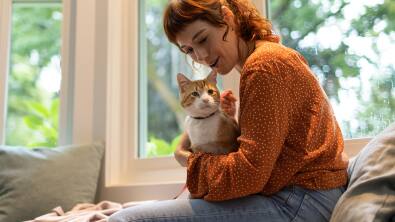

Stick with a routine
Changes to your furry friend’s environment or routine can lead to GI upset. Providing your cat with a calm, safe environment – as well as some regular playtime – can help your cat’s anxiety.


Consider their nutrition
Foods made with highly digestible ingredients can be gentle on upset tummies. Ask your veterinarian about switching your cat’s food and how to do it without upsetting your cat’s stomach any further.
How can you help?
First, if you suspect your cat is suffering from a digestive disorder, talk to your vet about treatments that may be able to help. You can further help your cat by helping reduce the amount of stress triggers in their environment with some of these suggestions.


Stick with a routine
Changes to your furry friend’s environment or routine can lead to GI upset. Providing your cat with a calm, safe environment – as well as some regular playtime – can help your cat’s anxiety.


Consider their nutrition
Foods made with highly digestible ingredients can be gentle on upset tummies. Ask your veterinarian about switching your cat’s food and how to do it without upsetting your cat’s stomach any further.
Talk to your vet about which nutrition is right for your pet.

Hill’s Prescription Diet i/d Wet Kitten Food is highly digestible, great-tasting nutrition, formulated to help manage digestive upsets. Made with chicken for a delicious taste. It’s formulated with Hill’s breakthrough ActivBiome+ Digestion, a proprietary blend of prebiotic fibers, clinically shown to rapidly activate the gut microbiome to support digestive health and overall well-being.

Hill’s Prescription Diet i/d Dry Adult Dog Food is highly digestible, great-tasting nutrition, clinically proven to help manage digestive upsets. Made with chicken for a delicious taste. It’s formulated with Hill’s breakthrough ActivBiome+ Digestion, a proprietary blend of prebiotic fibers, clinically shown to rapidly activate the gut microbiome to support digestive health and overall well-being.

Hill’s Prescription Diet Gastrointestinal Biome Stress is great tasting nutrition in a proprietary formula to help reduce stress for cats that have digestive upsets. Clinical nutrition formulated with high fiber to promote regular healthy stool in as little as 24 hours. Made with ActivBiome+ ingredient technology to rapidly activate the gut microbiome and help manage complex GI issues, with added ingredients to help reduce stress.

Weight loss for cats
Related articles
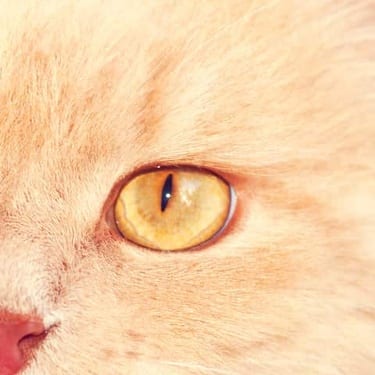
Discover which human foods are safe for your cat in our comprehensive guide. Learn about safe proteins, toxic items to avoid, and proper treat portions for feline health.
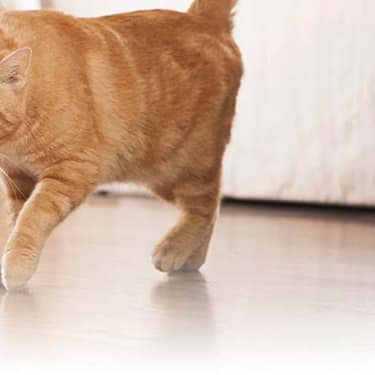
These 3 common feeding mistakes can cause your cat to exceed a healthy weight. Read what NOT to do when managing your cat's meals and nutrition.
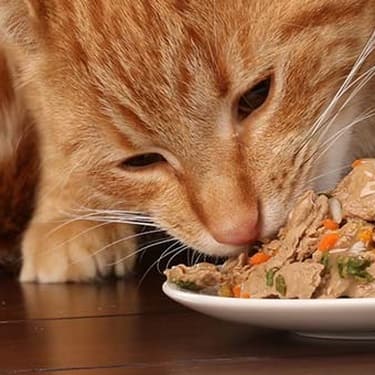
From essential vitamins & minerals to different types of meat, learn what to look for when choosing the best cat food for your feline.
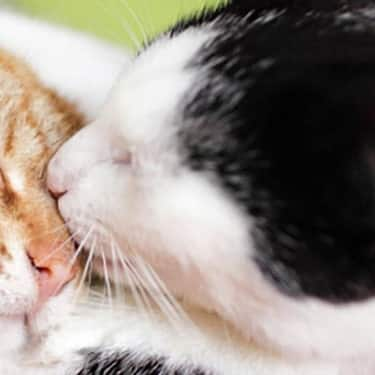
Discover if your cat is a picky eater or has a larger health condition at play, and what you can do to help her eat better.

